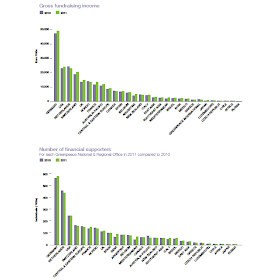the best brief descriptions of what is wrong with the eurozone and the European Union:
Over the years, economic and political power in Europe has been incrementally shifted to Brussels—away from the national capitals. The key decision-making bodies in the EU are largely unelected, and largely unaccountable to the national governments. For many, deeper European economic and political integration has become a secular religion that serves only the interest of a small group of political elites at the expense of others. -
In responding to the eurozone crisis, the actions taken by the EU has led to political and economic instability in a way that has not been seen for decades across Europe. Extreme fascist and communist political parties are once again doing well in elections, and secessionist movements are increasing across the continent.
In many southern European countries, rioting and protests are becoming commonplace. In Greece, anarchist groups are increasingly carrying out attacks on symbols of state authority or wealth. The most recent example of this violent unrest was yesterday’s bomb explosion in Athens. Far from creating tranquility, peace, and prosperity, the EU has created instability, disenchantment, and contempt across Europe.
Now that the EU has forced these draconian economic measures onto the people of Cyprus, there will be nothing stopping them from supporting similar acts in other ailing eurozone economies like Ireland, Italy, Portugal, and Spain. In fact, Dutch Finance Minister Jeroen Dijsselbloem hinted that the Cyprus bank raid could serve as a template for dealing with future eurozone crises. Those living and investing in southern Europe should consider this a warning.
Bureaucrats in Brussels have had a taste of power and now do not want to relinquish it. Consequently, the EU has transformed into an organization that regards basic Western values of liberty, economic freedom, and self-determination as roadblocks to an eventual United States of Europe.
Europe needs to return to the fundamental basics of democracy. Power needs to be brought back to the member states and to the people. Economic policies of growth need to be pursued. Intrusive and excessive EU regulations need to be curtailed. The wasteful spending in Brussels needs to end. The excessive borrowing and entitlement programs need to stop. Until this happens, the people of Europe will pay dearly for the incompetency of Brussels.
Read the entire article here




